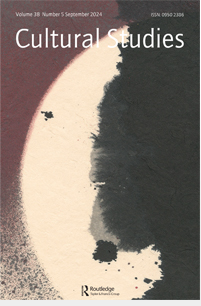Uncovering the uncoverers: identity, performativity and representation in counter-disinformation discourse

In the new open access article in the journal Cultural Studies, Stephen Hutchings constructively critiques the discourse practices of counter-disinformation units (CDUs). At the same time, he disavows bad-faith populist attacks on counter-disinformation as detrimental to ‘free speech’.
The activities of autocracies, conspiracists and other bad actors in the communications sphere represent a threat to democracies and their citizens. CDUs play a vital role in monitoring and combatting that threat. However, the rapid growth of counter-disinformation operations since 2016 has led to significant gaps, contradictions and inconsistencies in these practices. Specifically, Stephen highlights problems in the way that disinformation and linked phenomena are described and studied, and in how CDUs negotiate their relationship with democracy itself.
Applying critical discourse methods to the mission statements of key CDUs, he shows how they interweave three functions (identity, performativity, and representation) to articulate liberal democracy’s ‘discursive formation’, but in so doing, expose its fault lines. CDU failure to reconcile competing accounts of truth creates contradictions between liberal emphases on capitalist efficiency and the democratic prioritizing of popular power; dispassionate observation and civic participation; transparency and surveillance.
Stephen concludes that the absolutist epistemology (a remnant of the Cold War) designed to cover up these paradoxes masks the awkward relationship between truth and deception in politics generally. This epistemology hinders the emergence of alternative forms of knowledge capable of embracing truth in its full complexity and facilitating democratic renewal.
The article is available open access via this link:
https://www.tandfonline.com/doi/full/10.1080/09502386.2024.2384942?src=#abstract